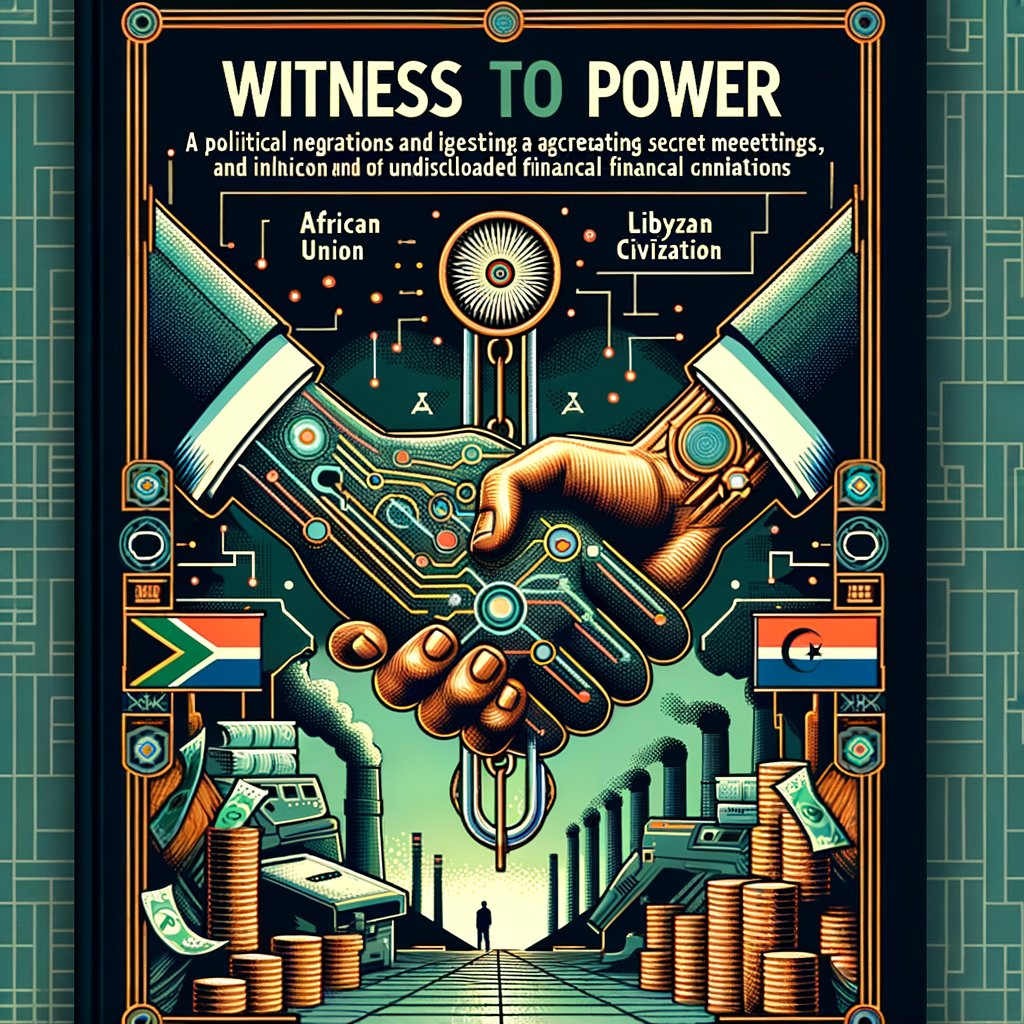Image created by AI
Mathews Phosa Unveils Gaddafi’s Alleged Financial Ties to ANC in "Witness to Power"
In a revelation that could have significant implications for South African politics and its international diplomatic standing, Mathews Phosa, former treasurer-general of the African National Congress (ANC), has disclosed in his memoir "Witness to Power" an alleged substantial financial contribution from the late Libyan leader Muammar Gaddafi towards the ANC's 2009 election campaign.
Phosa’s book brings to light that, as the treasurer-general at the time, he was instrumental in obtaining some of this controversial funding. The claim contradicts the ANC's longstanding denials of receiving financial support from Gaddafi. Particularly sensitive is the intimation that then-president of South Africa Jacob Zuma, may have had a conflict of interest during his mediation attempts in the Libyan civil war in 2011, given the financial ties to the Gaddafi regime.
Phosa's account recalls how in 2007, after Zuma's election as ANC president, Gaddafi sought a meeting prior to the 2009 elections, which resulted in an agreement for a significant one-time contribution to the ANC’s campaign fund. The narrative is further complicated by the presence of Zuma's nephew Khulubuse Zuma in the negotiations – a presence said to have startled Phosa.
The spokesperson for the JG Zuma Foundation has dismissed these revelations as distractions, while Khulubuse Zuma denies any representative role for the government and ANC spokesperson Mahlengi Bhengu-Motsiri claims the party's current leadership has no knowledge of the alleged donation due to the passage of time.
Phosa also details Gaddafi's ambitions to extend his tenure as chairman of the African Union (AU) and his proposal to Zuma to support this agenda in exchange for leadership roles in his envisioned African government. In the chronicle of events, Phosa declined to sway the Malawian government to stand down for Gaddafi's re-election as chairman, which led to a strained dynamic between the Libyan leader and the South African delegation.
Further complicating Zuma's role are his dealings with Mahmoud Jibril, head of Libya’s National Transitional Council, during the civil unrest. Here too, an about-face by Zuma after a visit to Gaddafi leaves Jibril distrustful of Zuma and questioning his motivations.
Notwithstanding Phosa's recollections, no concrete evidence was presented of the transactions mentioned, which he himself refers to as the stuff of legends, akin to the story of King Solomon’s Mines.
The release of these memoirs and their controversial claims invite the public to re-examine South Africa's historical political relationships and the continuity of foreign policy and ethics.










